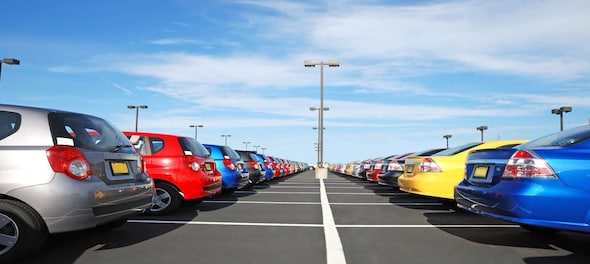
The prices of vehicles are set to soar in the country on the back of rising input costs and the Russian invasion of Ukraine, even as the waiting period for deliveries could get longer as the ongoing semiconductor crisis gets worse due to the conflict.
The Russia-Ukraine crisis is adding to the headwinds faced by the automotive industry that had just begun to recover from the COVID-19 pandemic-led slowdown. Although there has not been any impact of the conflict on the industry yet, vehicle makers were closely watching the situation.
“As of now, we do not see any direct impact of the Russia-Ukraine crisis situation on our business,” Rahul Bharti, Executive Director of Corporate Affairs at Maruti Suzuki, told The Economic Times over email.
Daimler India Commercial Vehicle and Mercedes-Benz said it was too early to comment on the impact of the crisis, while Hyundai Motor, Tata Motors and Toyota Kirloskar Motor did not respond to queries. TVS and Mahindra & Mahindra declined to comment.
Input costs may rise on the back of a spike in crude oil and aluminium prices. Prices of aluminium, a key material in vehicle manufacturing, rose to a record high of around $3,449 per tonne on the London Metal Exchange on Thursday, while Brent crude prices touched $105 a barrel before easing to $99.08 a barrel. In India, prices of aluminium rose 20 percent this quarter to a record high of around Rs 250 per kg. Aluminium accounts for 10-15 percent of the total raw material cost. On the other hand, crude has a ripple effect on freight costs.
Prices of precious metals such as rhodium, platinum and palladium, which are mostly sourced from Russia and Eastern Europe and used in catalytic converters in automobiles, have also reached 30-36-week highs.
Manufacturers spend 78-84 percent of their revenue on raw materials and are seeing 8-10 percent lower gross margin over the long-term average of 27-32 percent, ET reported.
Supply crunch can push inflation higher, leading to hardening of interest rates, which in turn will increase the cost of vehicle acquisition for buyers.
India may also be affected by the disruption of the global supply chain of semiconductors. The country is already reeling under the pressure of lower supplies from Malaysia on the back of regional issues. Although the situation was getting better, it may be hit by the recent developments in Europe.
Experts said the rise in cost of precious metals alone could result in a 4-5 percent hike in raw material prices of two-wheelers and passenger cars. Added to this will be the impact of rising aluminium and crude oil prices.
“This means passenger car and two-wheeler prices need to be hiked by Rs 10,000 and Rs 700 per unit, respectively, to offset the higher raw material cost,” an auto analyst at a domestic brokerage house told the business daily.
However, till now, manufacturers have not seen any impact on the prices of raw materials. “We are keenly observing the situation as it unfolds and are hopeful that things will normalise soon," Business Today quoted Vinnie Mehta, Director General of Automobile Component Manufacturers Association (ACMA), as saying.



